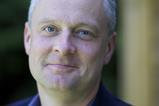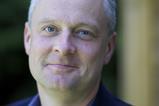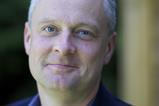Whether it is to develop an eventual exit strategy for lockdown or to prepare for handling acute care demands from a second wave of covid-19 infections, testing is essential, says Andy Cowper.
Following the science
Pert three-word phrases that prove effective in campaigning - “take back control”, “get Brexit done” - don’t always work as well in the operational graft of government. PR grifting and political reality grafting are two rather different things.
The current mantra behind which government ministers are trying to hide is “following the science”. It’s had far too little scrutiny.
The phrase aims to forestall any criticism: it implies that “the science” is a settled thing, which it very rarely is (and in the case of this new coronavirus, certainly isn’t).
Science is the realm of assumptions, hypotheses and challenges. It is also the realm of fierce rivalries, such as that between the Imperial and Oxford virologists.
Chief medical officer Chris Whitty knows and has been saying this: “There is a huge amount of dissent and debate” (and) range of opinion” among government scientists. Whitty pointed out that SAGE and other scientists give the government a central view, while outlining the areas of dissent to inform ministers’ decision-making. He also clearly stated that SAGE did not give the government its 100,000 tests per day target.
“Following the science”? Mmmmmmm.
So … the 100,000 tests are not following the science: it’s following the political perception of a “nice round number”. Our work experience health amd social care secretary Matt Hancock has tried to lead the world’s least subtle pivot on testing, by announcing numbers for “testing capacity”.
This is more than usually specious: testing capacity is no use unless it is in accessible places, which people know about and can get to them. The Chessington testing centre run by management consultants Deloitte was evidently extremely ineptly run: we can only assume that the Department of Health and Social Care will be asking for taxpayers’ money back.
Until we have testing delivery, we will remain short on essential data.
Professor Witty suggested this week that levels of covid-19 infection in the population are relatively low, but this is a hypothesis. It’s a guess: one that can only be derived from modelling the numbers going into hospital and being tested positive there.
This is why testing is essential. Whether it is to develop an eventual exit strategy for lockdown or to prepare for handling acute care demands from a second wave of covid-19 infections, we need numbers from community seroprevalence surveys of the antibodies developed after an infection.
Given that the first significant spread was in London and the south-east, and the biggest demand pressures from covid-19 have been in London and the West Midlands, it would be sensible if these areas were weighted somewhat more highly in the research. We can look at some good data from ICNAR, which covers 6,720 patients in intensive care, with outcome data on 4,078 of them; 2,067 deaths and 2,011 discharged from critical care. I recommend Stuart McDonald’s explanation.
Mr Hancock also announced this week that we are re-starting contact tracing and community testing, which were abandoned in early March. This followed Health Select Committee chair Jeremy Hunt’s comment piece in The Times advocating this. Whether this was causation or correlation, Mr Hunt (influenced perhaps by his understanding of the Far East) has been saying this from the start: this is likely to have medium-term political consequences, once the covid-19 blowback hits the Cabinet.
Both tracking and testing strategies are recommended by the World Health Organisation, and would appear to have science to commend them.
It is clear that countries which have contained covid-19 more successfully have made significant use of these strategies. Exercise Cygnus, as featured in this NHS England 2017 board paper, led to the production of a highly acclaimed respiratory pandemic action plan. Singapore borrowed that plan from the UK: the difference being that they implemented it.
So we should be properly sceptical of that “following the science” line. We should remember that Mr Hancock and other members of the government tried to deny that they had been following a “herd immunity strategy”, as publicly discussed by chief scientific officer Sir Patrick Vallance on national media.
How certain?
Science is as empirical as it can be, but in the words of the great physicist and communicator Richard Feynman “We absolutely must leave room for doubt or there is no progress and there is no learning. There is no learning without having to pose a question. And a question requires doubt.
“People search for certainty. But there is no certainty. People are terrified, how can you live and not know? It is not odd at all. You only think you know, as a matter of fact. And most of your actions are based on incomplete knowledge and you really don’t know”.
There is another essential Feynman quote: “We’ve learned from experience that the truth will come out. Other experimenters will repeat your experiment and find out whether you were wrong or right. Nature’s phenomena will agree or they’ll disagree with your theory. And, although you may gain some temporary fame and excitement, you will not gain a good reputation as a scientist if you haven’t tried to be very careful in this kind of work. And it’s this type of integrity, this kind of care not to fool yourself, that is missing to a large extent in much of the research in cargo cult science”.
Less Macbeth, more Colt Seevers
People are starting to smell the government’s panic, and some of them are in the government. Our work experience health secretary Matt Hancock told us, discussing the possibility of easing lockdown restrictions soon, that “we’ve travelled together too far to turn back now”.
This is incoherent, given that, as noted above, the government reversed its direction of travel on contact tracing this week. More to the point, this attitude epitomises the most wrong-headed and anti-scientific policy line possible. The phrase brings directly to mind Macbeth’s lines “I am in blood/Stepp’d in so far that, should I wade no more,/Returning were as tedious as go o’er”. Economists call this the “sunk cost fallacy”.
The irony of this is that Mr Hancock seems to think that he’s the tragic hero Macbeth, when in political reality, he’s Colt Seevers: The Fall Guy.































8 Readers' comments